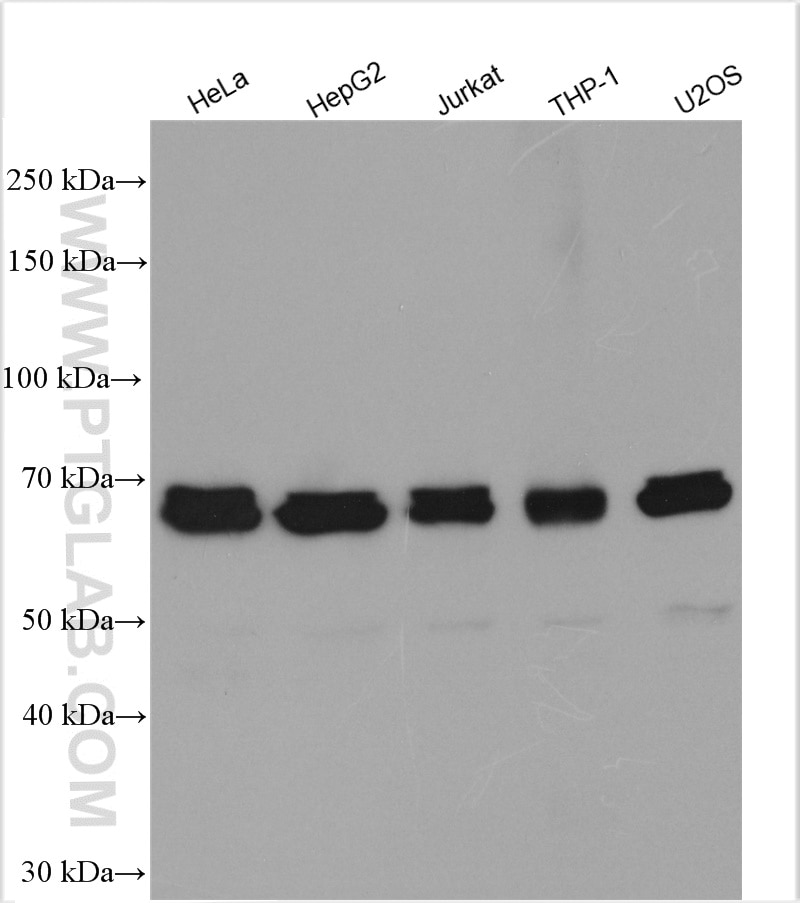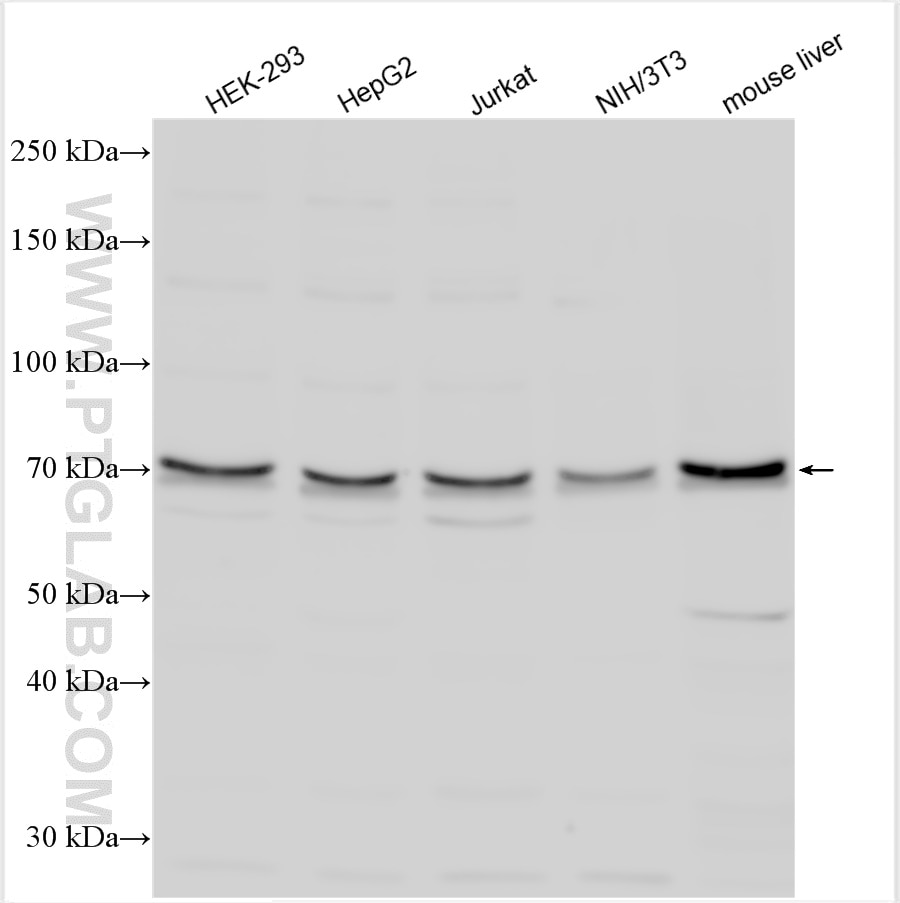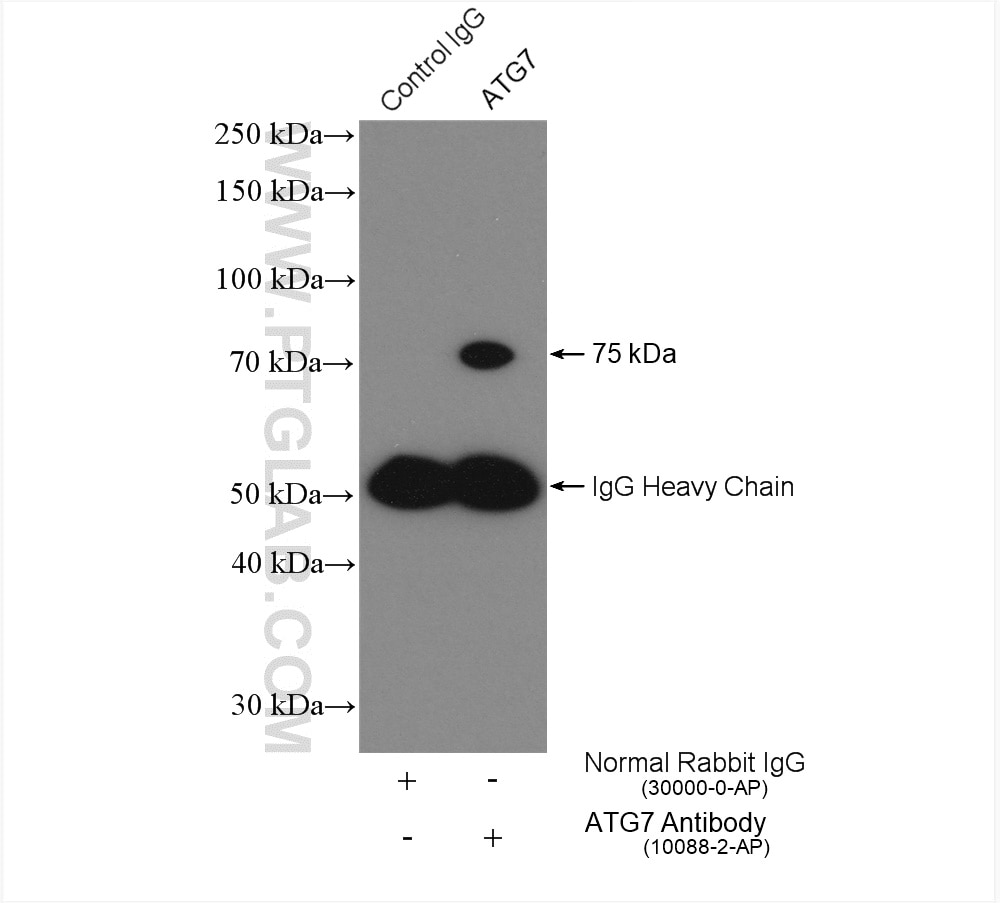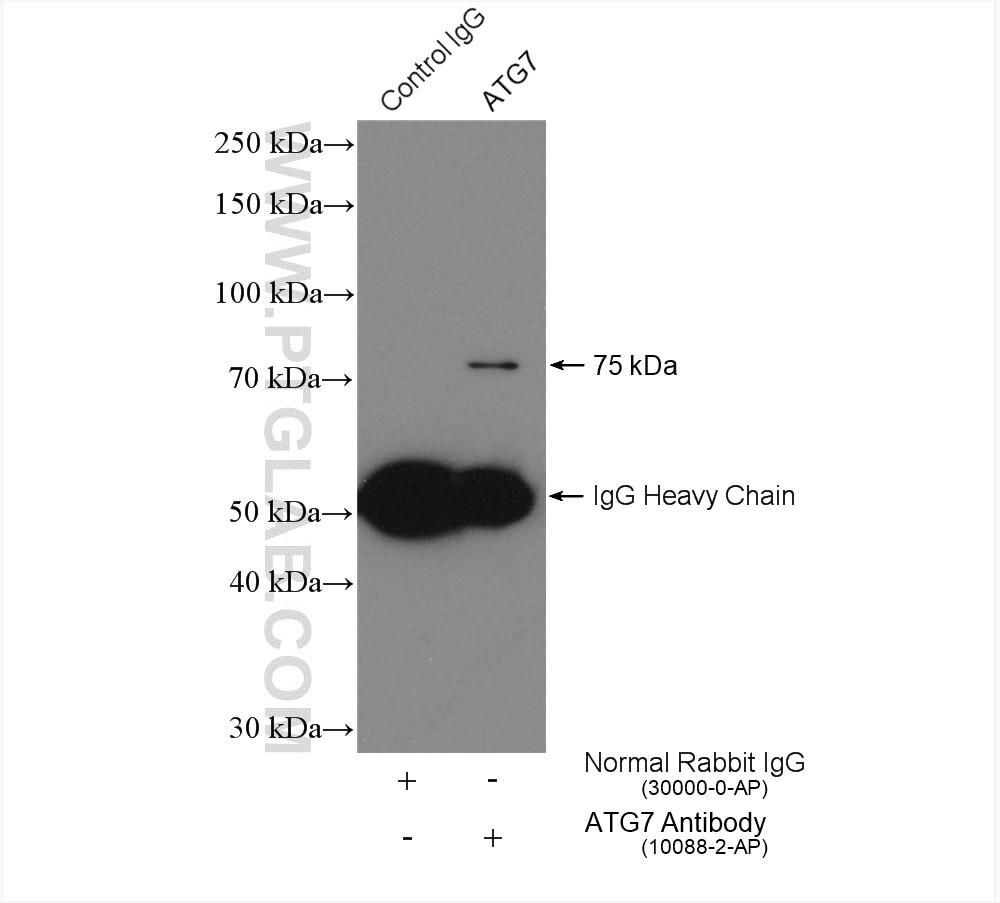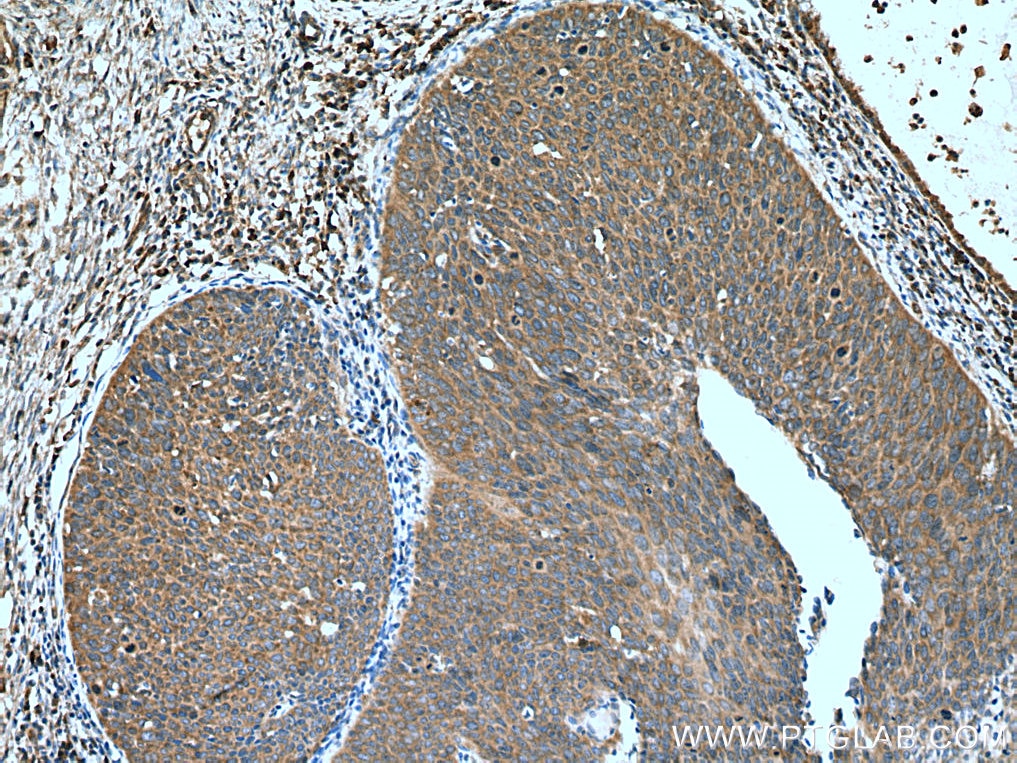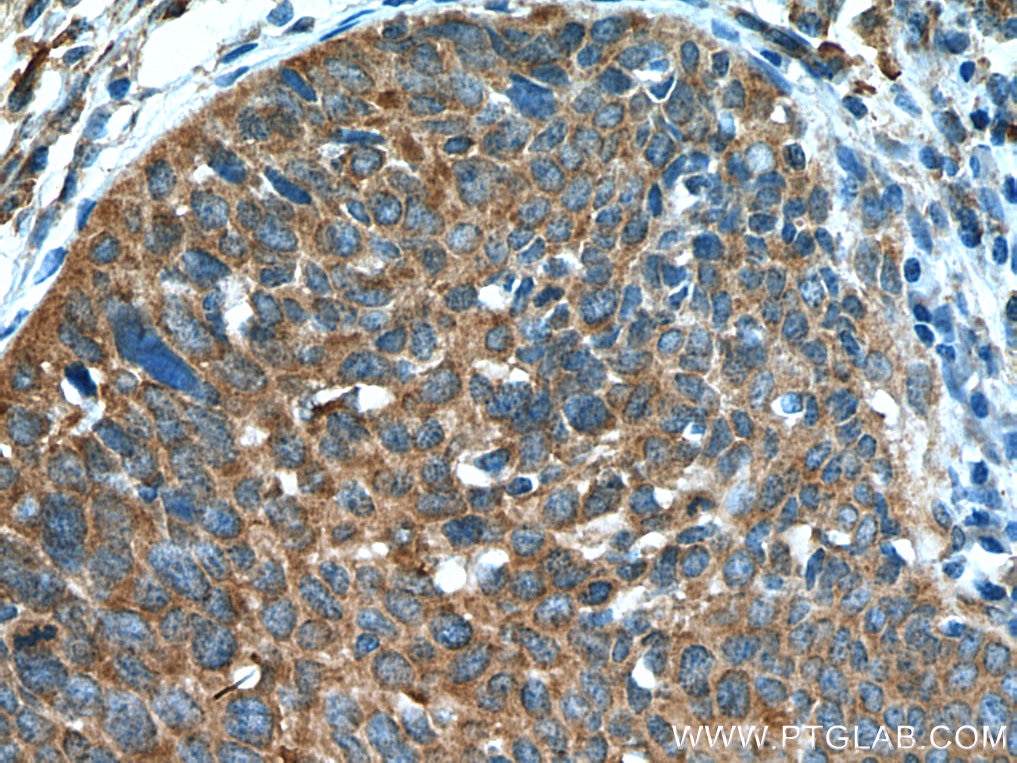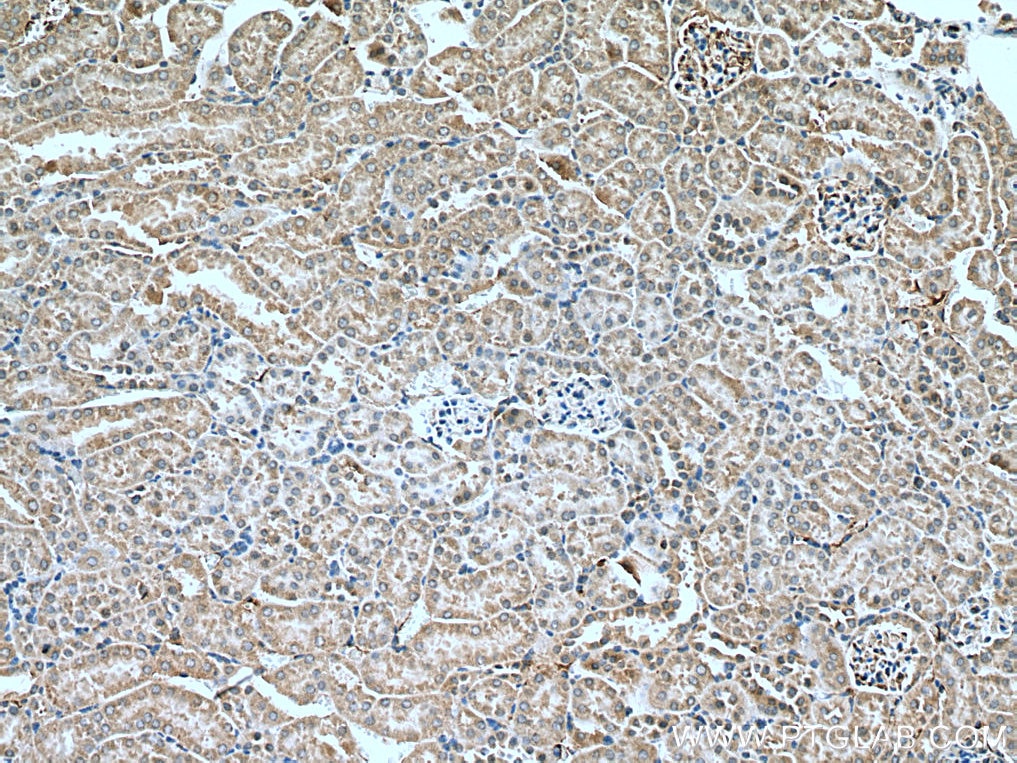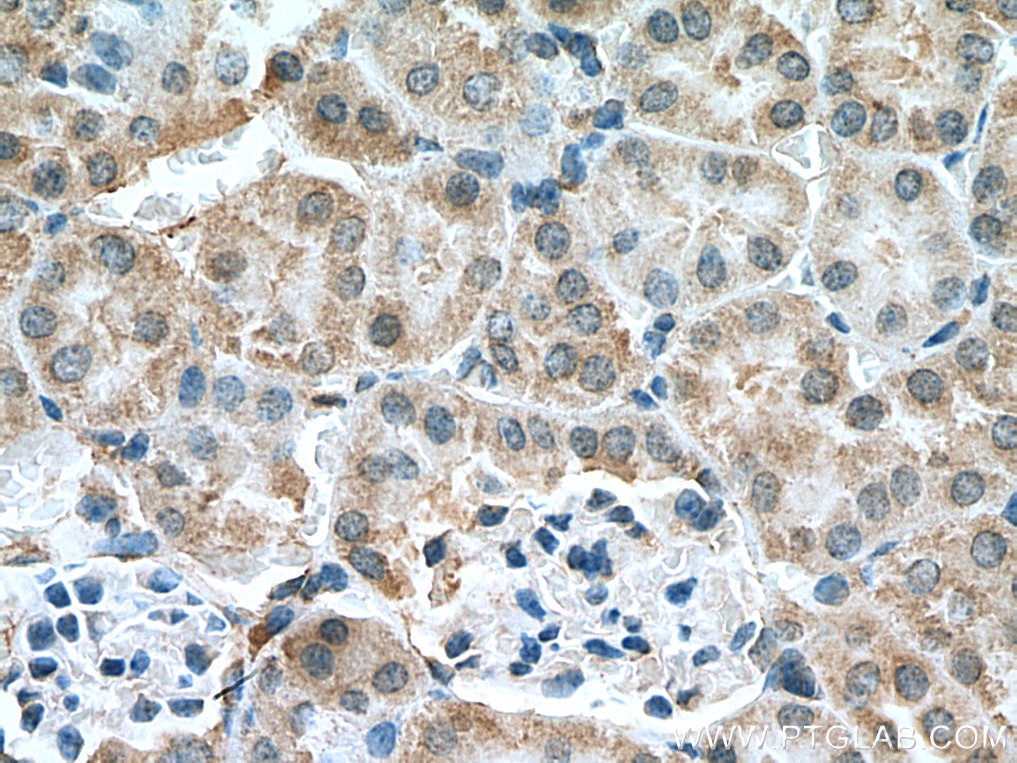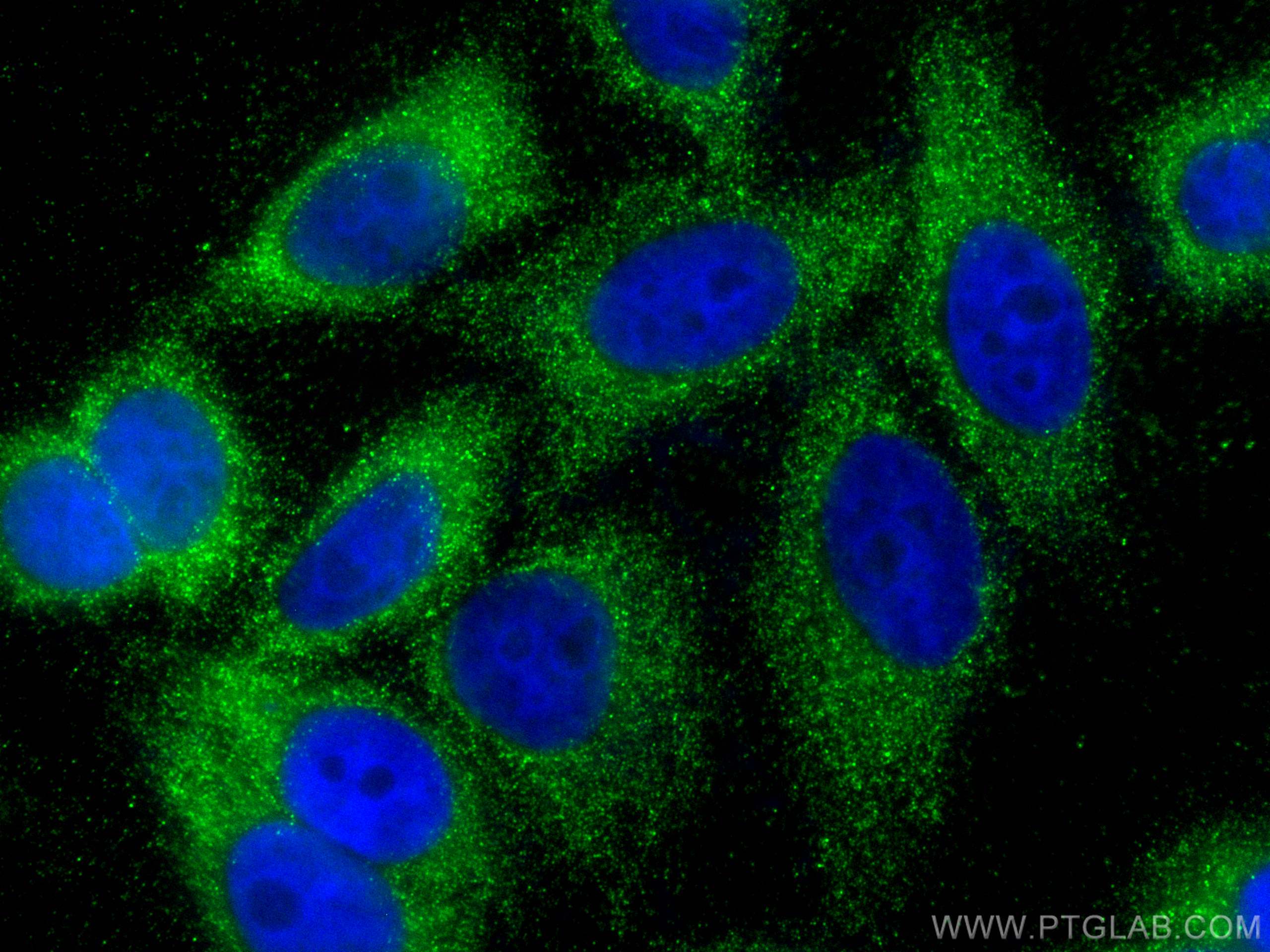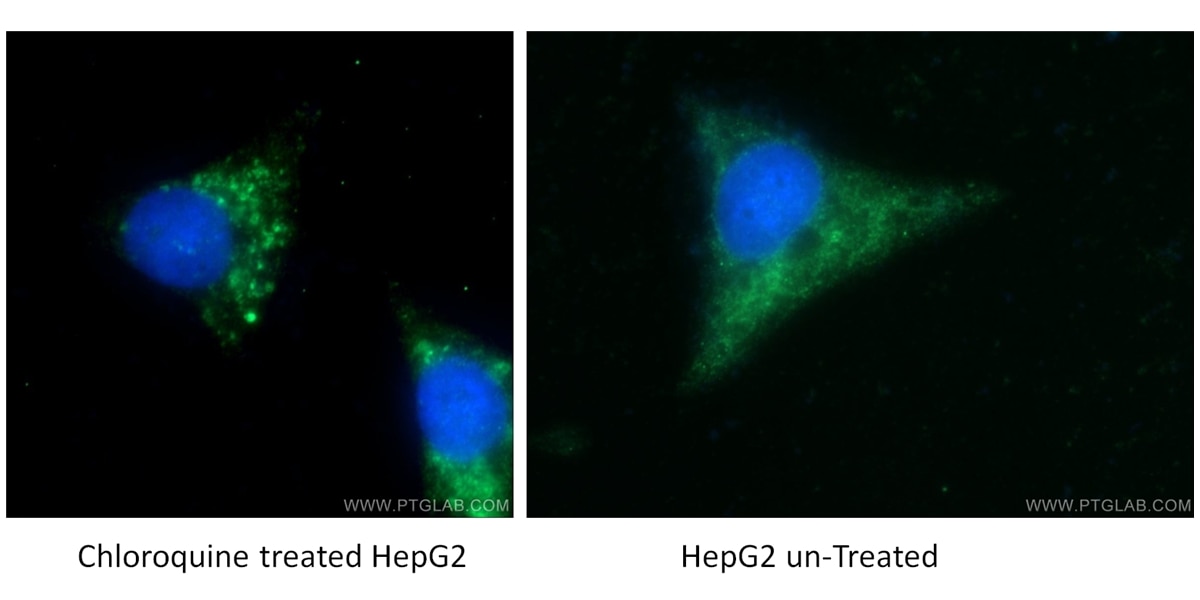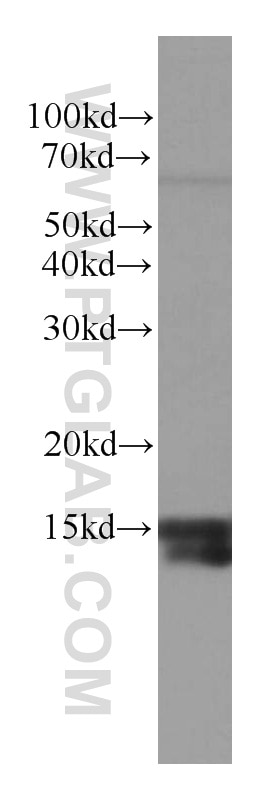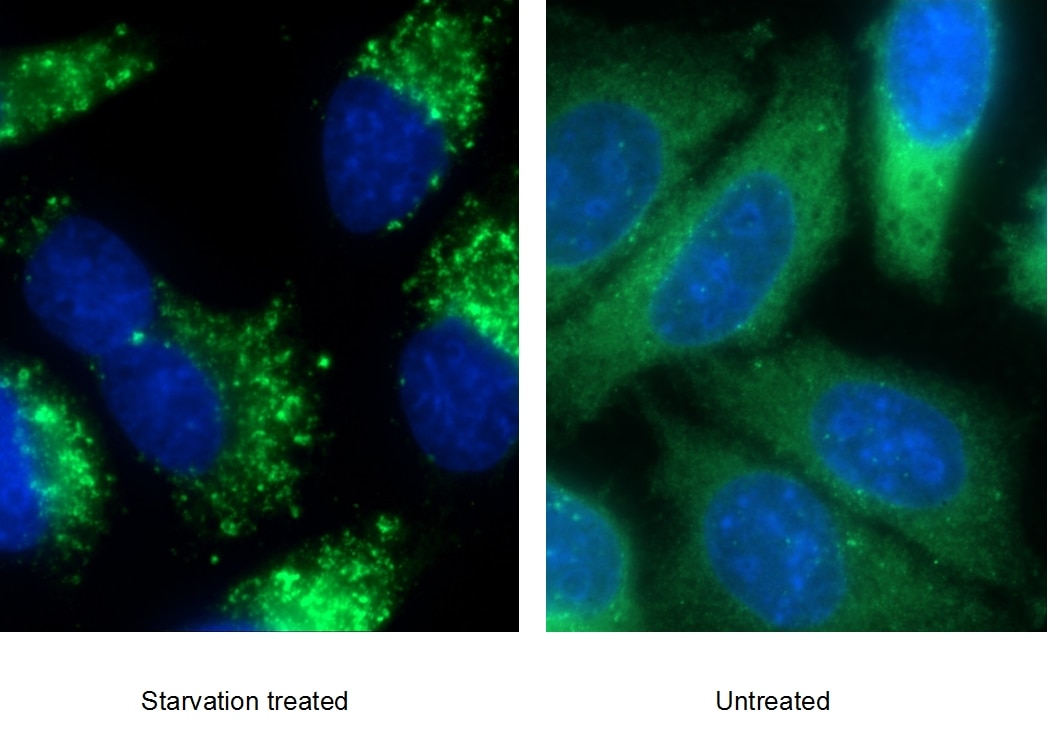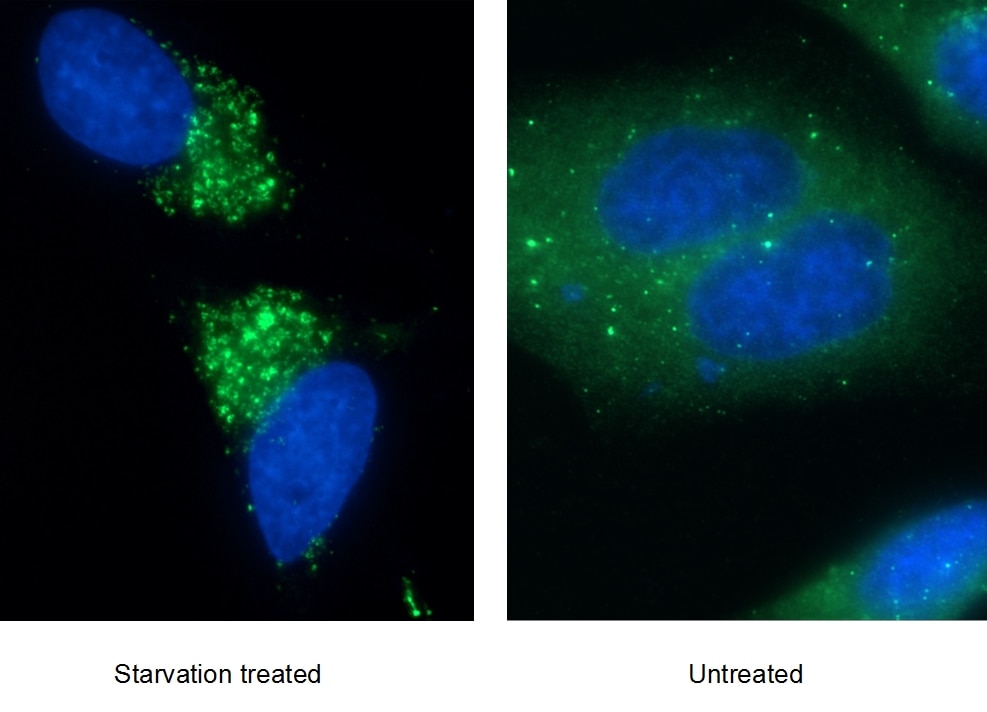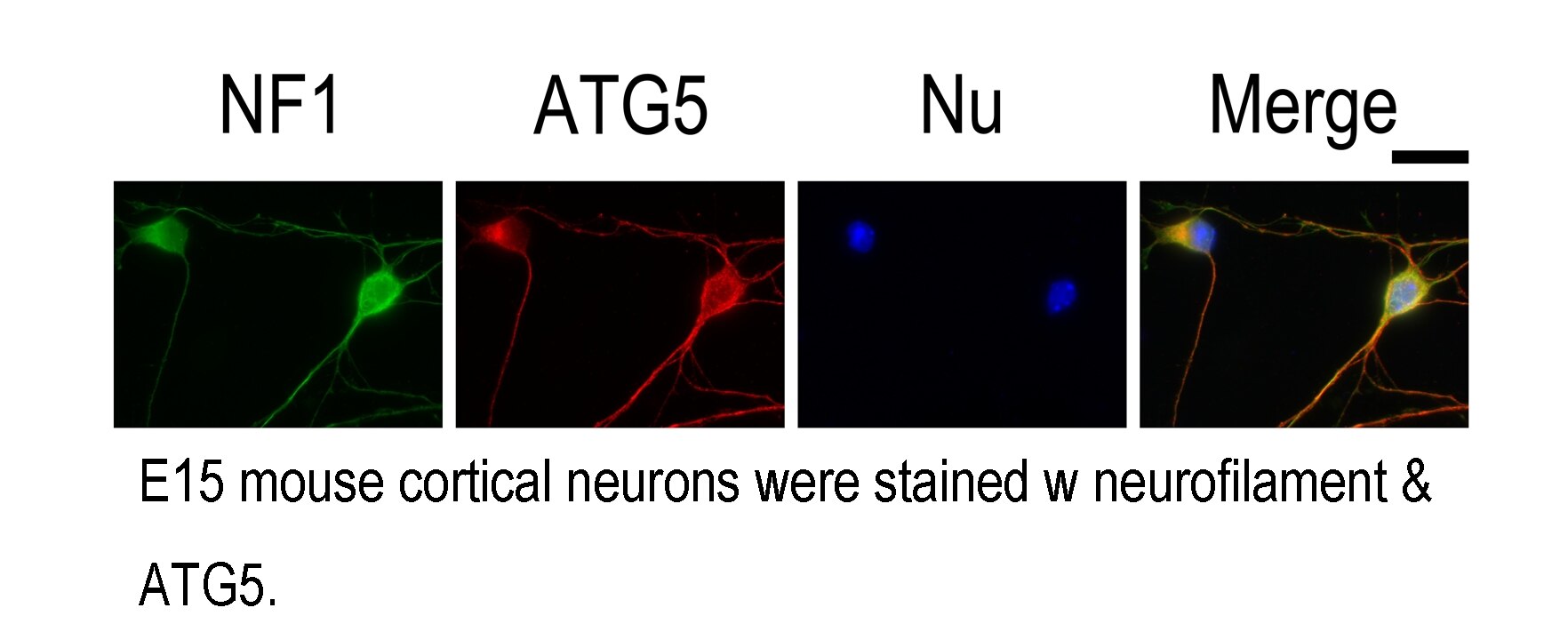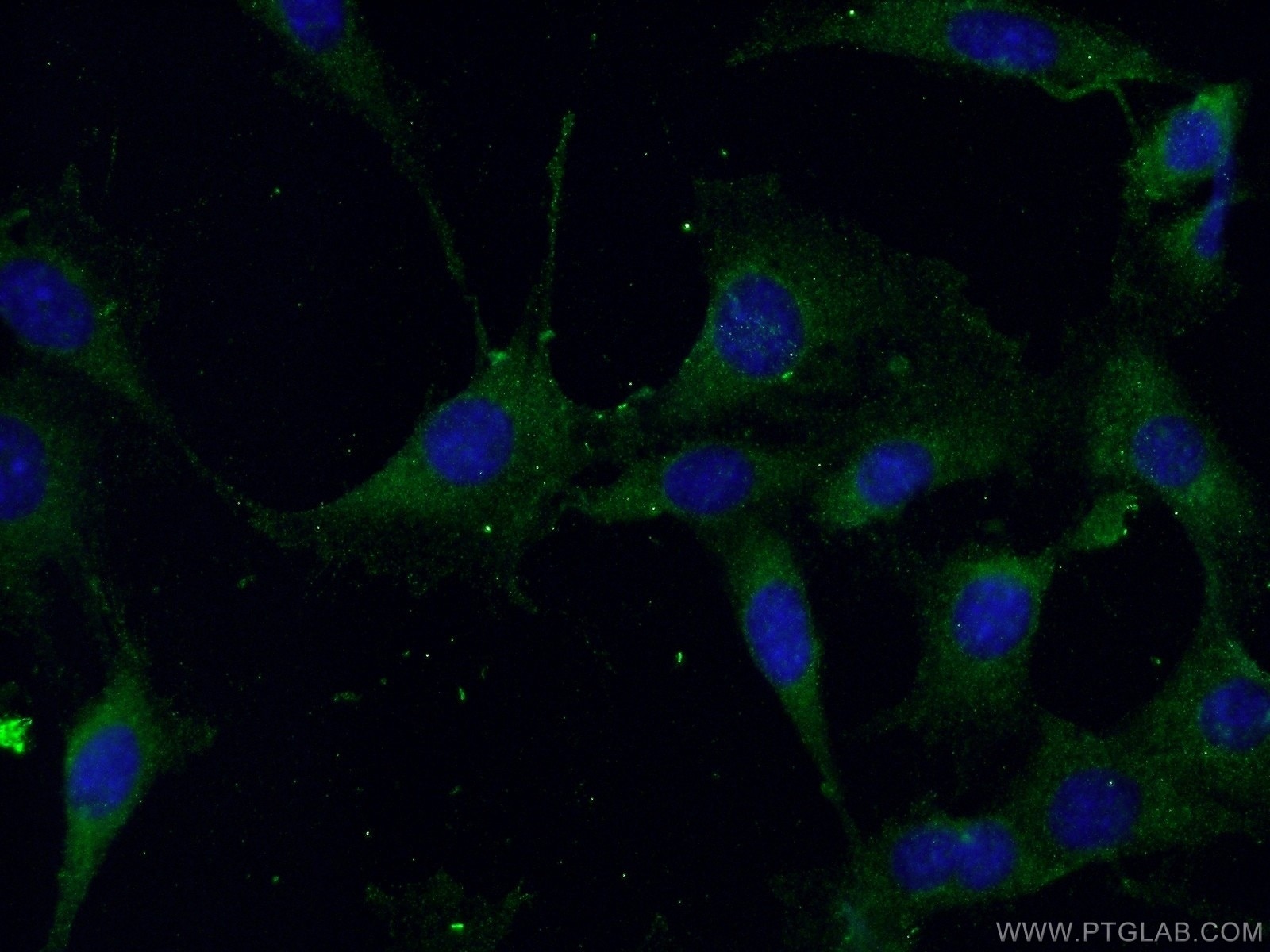- Phare
- Validé par KD/KO
Anticorps Polyclonal de lapin anti-ATG7
ATG7 Polyclonal Antibody for WB, IP, IF, IHC, ELISA
Hôte / Isotype
Lapin / IgG
Réactivité testée
Humain, souris et plus (6)
Applications
WB, IHC, IF/ICC, IP, CoIP, ELISA
Conjugaison
Non conjugué
117
N° de cat : 10088-2-AP
Synonymes
Galerie de données de validation
Applications testées
| Résultats positifs en WB | cellules HeLa, cellules HEK-293, cellules HepG2, cellules Jurkat, cellules NIH/3T3, cellules THP-1, cellules U2OS, tissu hépatique de souris |
| Résultats positifs en IP | cellules HT-1080, cellules NIH/3T3 |
| Résultats positifs en IHC | tissu de cancer du col de l'utérus humain, tissu rénal de souris il est suggéré de démasquer l'antigène avec un tampon de TE buffer pH 9.0; (*) À défaut, 'le démasquage de l'antigène peut être 'effectué avec un tampon citrate pH 6,0. |
| Résultats positifs en IF/ICC | cellules HepG2, |
Dilution recommandée
| Application | Dilution |
|---|---|
| Western Blot (WB) | WB : 1:500-1:3000 |
| Immunoprécipitation (IP) | IP : 0.5-4.0 ug for 1.0-3.0 mg of total protein lysate |
| Immunohistochimie (IHC) | IHC : 1:50-1:500 |
| Immunofluorescence (IF)/ICC | IF/ICC : 1:50-1:500 |
| It is recommended that this reagent should be titrated in each testing system to obtain optimal results. | |
| Sample-dependent, check data in validation data gallery | |
Applications publiées
| KD/KO | See 19 publications below |
| WB | See 106 publications below |
| IHC | See 16 publications below |
| IF | See 9 publications below |
| CoIP | See 1 publications below |
Informations sur le produit
10088-2-AP cible ATG7 dans les applications de WB, IHC, IF/ICC, IP, CoIP, ELISA et montre une réactivité avec des échantillons Humain, souris
| Réactivité | Humain, souris |
| Réactivité citée | rat, Chèvre, Humain, porc, poulet, souris, Hamster, crevette |
| Hôte / Isotype | Lapin / IgG |
| Clonalité | Polyclonal |
| Type | Anticorps |
| Immunogène | ATG7 Protéine recombinante Ag0142 |
| Nom complet | ATG7 autophagy related 7 homolog (S. cerevisiae) |
| Masse moléculaire calculée | 78 kDa |
| Poids moléculaire observé | 68-78 kDa |
| Numéro d’acquisition GenBank | BC000091 |
| Symbole du gène | ATG7 |
| Identification du gène (NCBI) | 10533 |
| Conjugaison | Non conjugué |
| Forme | Liquide |
| Méthode de purification | Purification par affinité contre l'antigène |
| Tampon de stockage | PBS avec azoture de sodium à 0,02 % et glycérol à 50 % pH 7,3 |
| Conditions de stockage | Stocker à -20°C. Stable pendant un an après l'expédition. L'aliquotage n'est pas nécessaire pour le stockage à -20oC Les 20ul contiennent 0,1% de BSA. |
Informations générales
Atg7 is an E1-like enzyme that is specifically involved in autophagosome formation and is essential for autophagy. As an autophagic-related protein it is required for linking to Atg12, Atg5 and Atg8, which are essential for Atg conjugation and autophagosome formation. Atg7 has been reported as an important regulator of autophagy with starvation-induced or chemotherapeutic agent treatment. The high expression level of ATG7 is related to the survival of patients with breast cancer. There are several isoforms of ATG7 protein ranged from 68 kDa to 78 kDa.
Protocole
| Product Specific Protocols | |
|---|---|
| WB protocol for ATG7 antibody 10088-2-AP | Download protocol |
| IHC protocol for ATG7 antibody 10088-2-AP | Download protocol |
| IF protocol for ATG7 antibody 10088-2-AP | Download protocol |
| IP protocol for ATG7 antibody 10088-2-AP | Download protocol |
| Standard Protocols | |
|---|---|
| Click here to view our Standard Protocols |
Publications
| Species | Application | Title |
|---|---|---|
Adv Sci (Weinh) Inhibition of CK2/ING4 Pathway Facilitates Non-Small Cell Lung Cancer Immunotherapy | ||
Nat Commun Inhibition of the CDK2 and Cyclin A complex leads to autophagic degradation of CDK2 in cancer cells.
| ||
Autophagy Negative pressure wound therapy improves bone regeneration by promoting osteogenic differentiation via the AMPK-ULK1-autophagy axis. | ||
Autophagy AP2M1 mediates autophagy-induced CLDN2 (claudin 2) degradation through endocytosis and interaction with LC3 and reduces intestinal epithelial tight junction permeability.
|
Avis
The reviews below have been submitted by verified Proteintech customers who received an incentive forproviding their feedback.
FH Priya (Verified Customer) (08-09-2023) | Used for Caco2 cells and mice colon tissue
|
FH Kamal (Verified Customer) (06-29-2023) | Atg7 band showed up better than from other companies.
 |
FH Priya (Verified Customer) (06-21-2023) | Used this antibody for Caco2 cells and mice tissue
|
